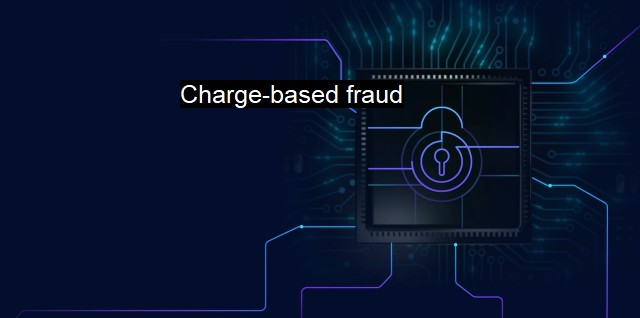What is Charge-based fraud?
The Role of Antivirus Software in Preventing Charge-Based Fraud: Safeguarding Consumers' Digital Lives
Charge-based fraud is a form of malicious activity that is increasingly prevalent in the cyber-security landscape. In the most fundamental sense, this fraudulent action involves criminals utilizing stolen or fraudulent credit card details to make purchases or carry out other types of transactions. with the term 'charge-based fraud' holds a more complex meaning, closely associated with a form of cyber-attack executed or enabled by exploiting flaws in security, specifically payment and transaction related systems.This type of fraud could involve tampering with the transaction process such that unauthorized charges are applied or transactions are falsely verified. it can incorporate schemes that dupe users into surrendering their credit card or financial information under false pretenses. The goal of cybercriminals carrying out charge-based fraud is typically financial gain from unauthorized transactions or selling the stolen information to third parties.
Charge-based fraud in the cyber context can manifest in various methods -unauthorized access, account takeover, or phishing. Unauthorized access typically happens when a cyber criminal intrudes systems or networks containing payment data, such as that of e-commerce sites, to gain unauthorized admittance and conduct illegal transactions. In contrast, account takeover involves the cybercriminal unlawfully accessing a victim's online account to masquerade as the legitimate user and carry out unsanctioned transactions. On the other hand, phishing targets individuals directly and manipulates them into voluntarily surrendering private financial information, such as credit card details.
The consequences of charge-based cyber fraud can be disastrous. Not only can victims experience significant financial loss, but it also often leads to severe violations of privacy. businesses stand to lose their reputation, consumer trust, and potentially face legal consequences of substantial data breaches.
In light of the potency and prevalence of charge-based fraud, anti-virus software and other cybersecurity measures have a crucial role to play in combating this threat. The first line of defense against any cyber threat is often an effective antivirus program. Traditional antivirus software operates by scanning a device's system and files against a database of known threats. Modern antivirus solutions not only protect against known malware but also use heuristic analysis and artificial intelligence to identify and quarantine unknown threats.
Beyond antivirus software, additional cybersecurity protocols and strategies that may serve to undermine charge-based fraud include encryption of credit card or financial data in transit and at rest, regular security audits, vulnerability assessments, multifactor authentication, and firewalls, among others. Tools like Extended Validation Secure Sockets Layer (SSL) certificates can further enhance transaction security by ensuring that data transmitted over the internet remains confidential and integral.
Awareness is consequential in the battle against charge-based fraud. By raising awareness and educating users about the visual cues and red flags associated with legitimate websites and services versus those designed with malicious intent, we can avoid accidentally surrendering our private financial information. Ensuring strong, unique passwords, avoiding suspicious links, and regularly updating and patching software also play pivotal roles in protecting against fraudulent charges.
Entities handling user's financial data are encouraged to adhere to industry-defined payment security standards, such as the Payment Card Industry Data Security Standard (PCI-DSS), to bolster their defense against charge-based fraud.
Charge-based fraud presents a well-entrenched threat to the cybersecurity landscape. This damaging cyber threat requires a multi-faceted response involving responsive technological defenses alongside vigilant user behavior to minimize the risk of financial harm and privacy violations. Moving forward, further sophistication in our antivirus and cybersecurity defenses and the continued development of safe cyber practices will be essential in securing our data-rich environments from such threats.

Charge-based fraud FAQs
What is charge-based fraud?
Charge-based fraud is a type of cyber fraud where criminals use stolen credit card information to make online purchases or conduct unauthorized transactions. It involves unauthorized charges that appear on your credit card statement, usually after your credit card information has been intercepted or stolen.How can I protect myself from charge-based fraud?
To protect yourself from charge-based fraud, always use trusted antivirus and cybersecurity software on all your devices. Make sure you only provide your credit card information to reputable and secure websites. Also, monitor your credit card statements regularly for any unauthorized charges and report any suspicious activity to your bank or credit card issuer immediately.What should I do if I suspect charge-based fraud?
If you suspect charge-based fraud, immediately contact your bank, credit card issuer or financial institution to report the unauthorized charge. They will guide you on the steps you need to take to protect your account and prevent further fraudulent activity.Who is responsible for charge-based fraud – the consumer or the credit card issuer?
The consumer is not typically responsible for charge-based fraud if they have reported the unauthorized activity to their credit card issuer in a timely manner. Credit card issuers are responsible for investigating the fraudulent charges and reimbursing the consumer for any charges they did not authorize.| | A | | | B | | | C | | | D | | | E | | | F | | | G | | | H | | | I | | | J | | | K | | | L | | | M | |
| | N | | | O | | | P | | | Q | | | R | | | S | | | T | | | U | | | V | | | W | | | X | | | Y | | | Z | |
| | 1 | | | 2 | | | 3 | | | 4 | | | 7 | | | 8 | | |||||||